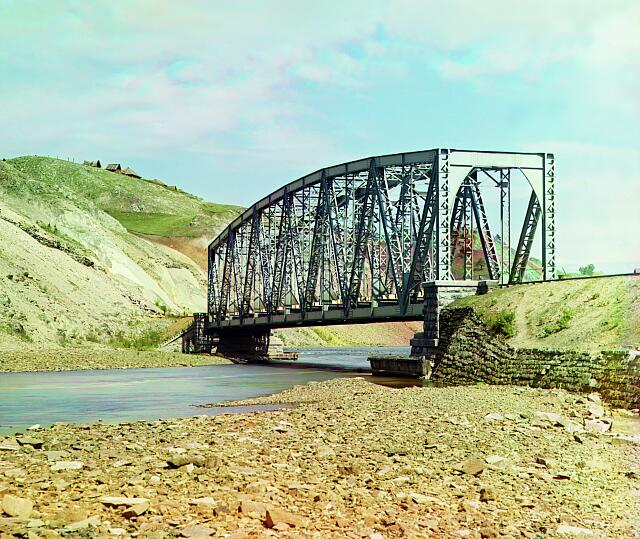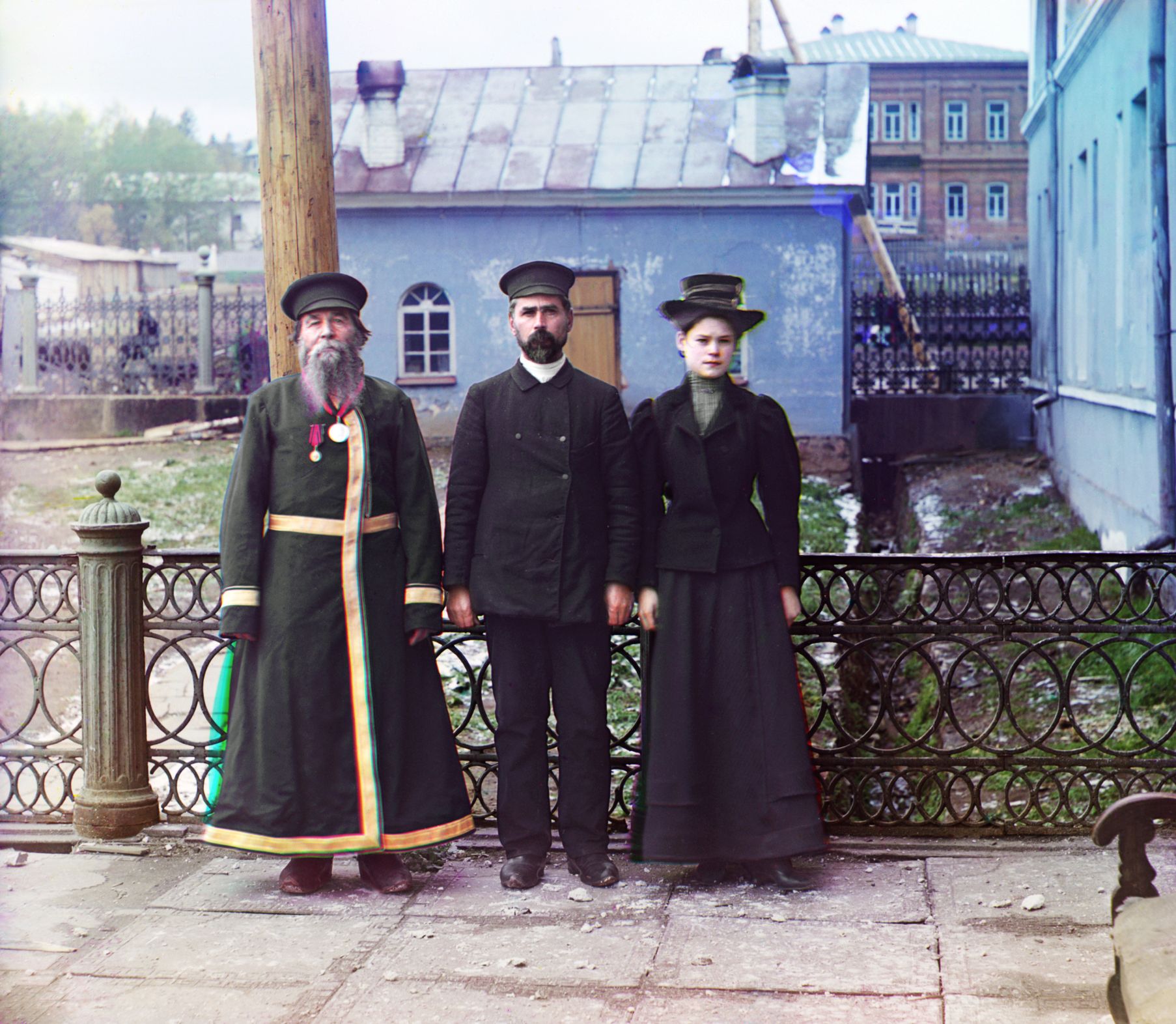I think it's one of those early color photographs. Basically, a photographer would take three photographs, each with a different color filter. Those photographs were black-and-white, where the value corresponded to the saturation of one of the filter's colors. They were then projected onto a final image using collotype printing with a different dye for each black-and-white photograph. This process can give you all sorts of colors by mixing three primary colors of dyes, but it's tricky to make photographs align perfectly. As you can see, there are stripes of cyan, green, and red on the contour of those people, as well as some blur, and that's because it's hard to stand still between photographs, or a wind could make your clothes move a little, etc.
HistoryPorn
If you would like to become a mod in this community, kindly PM the mod.
Relive the Past in Jaw-Dropping Detail!
HistoryPorn is for photographs (or, if it can be found, film) of the past, recent or distant! Give us a little snapshot of history!
Rules
- Be respectful and inclusive.
- No harassment, hate speech, or trolling.
- Engage in constructive discussions.
- Share relevant content.
- Follow guidelines and moderators' instructions.
- Use appropriate language and tone.
- Report violations.
- Foster a continuous learning environment.
- No genocide or atrocity denialism.
Pictures of old artifacts and museum pieces should go to History Artifacts
Illustrations and paintings should go to History Drawings
Related Communities:
The photographer is Sergey Prokudin-Gorsky, a pioneer of colour photography done just as you described
That is so cool. Thank you.
a photographer would take three photographs, each with a different color filter
on three different glass plates nonetheless. the images he captured are as breathtaking as the technology used.
https://www.loc.gov/collections/prokudin-gorskii/



























Dad's overcoat looks super cozy, bring these back pls
And her jacket, so tight & puffy at the same time, love it
Everyone looks so happy, it is heart warming!
1910 Russia... That was about as good as it was going to get for about a decade, and even then life was likely shit for them. It was just going to get so much worse.
The revolution actually improved the lives of most Russians, at the expense of making the lives of non-Russians quite a bit worse.
Then Stalin came to power and promoted the "science" of a guy named Trofim Lysenko. Millions starved to death, and then the Soviets exported the flawed science to China in what had to have been a psyop, and millions more starved.
Which just lends more weight to the theory that the Soviets, and Stalin in particular, were fond of weaponizing famine, because it happened again and again, always at the expense of people who were not ethnically Russian.
I mean, I actually did get that impression, quite content too.
